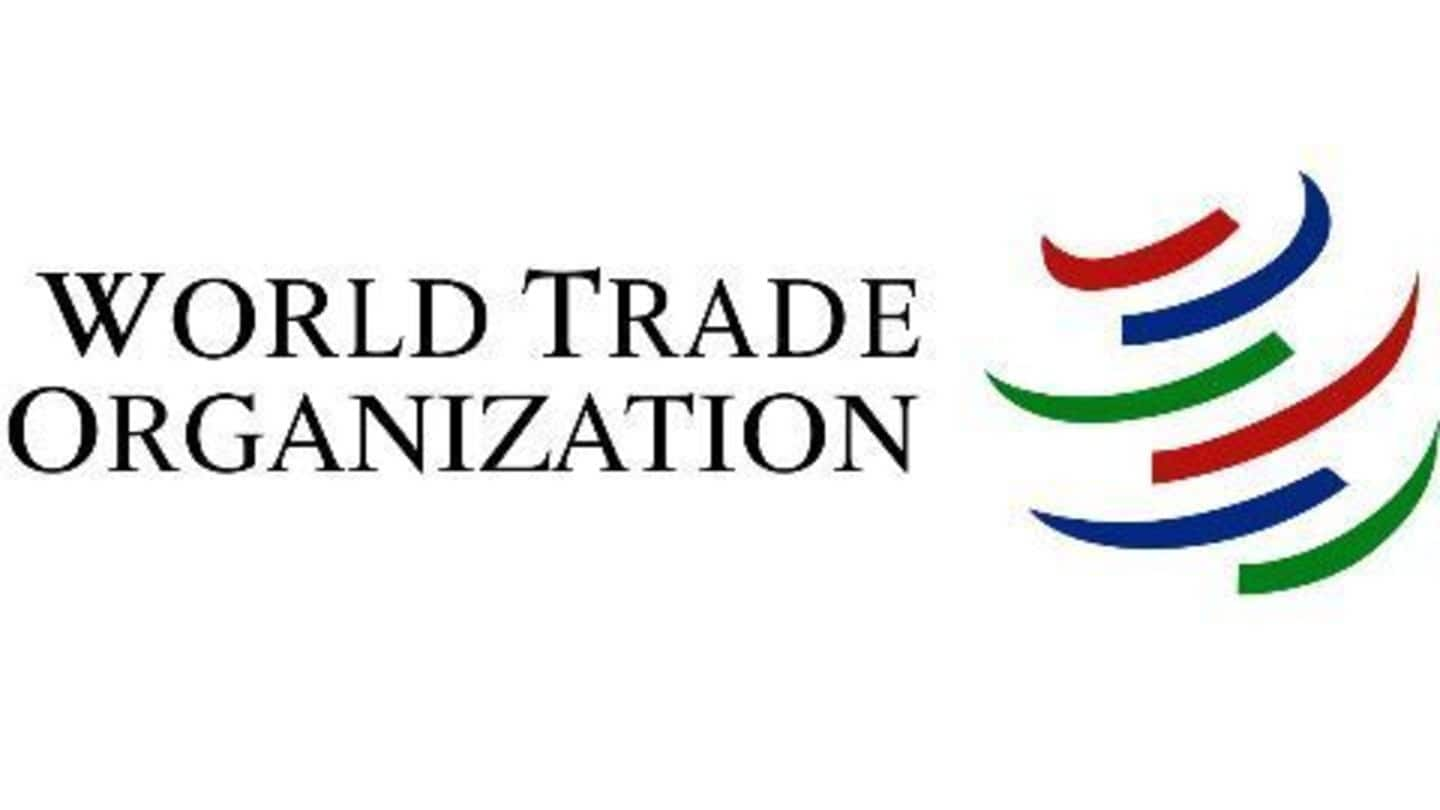
Congress says WTO deal a 'huge setback'
What's the story
Attacking the government for agreeing to the WTO deal in Nairobi, Congress said it was a "huge setback" for India.
Congress' Anand Sharma said there was a complete dilution of WTO commitment to the Doha Development Agenda (DDA) and that the party will raise the issue in parliament.
Opposition as well as civil society groups are planning to put pressure on government regarding this.
WTO
Brief understanding of WTO
World Trade Organization (WTO) is an intergovernmental forum which regulates international trade. It is a place for the member countries to negotiate trade agreements and settle trade disputes.
It was formed on 1 January 1995, replacing the General Agreement on Tariffs and Trade (GATT).
Headquartered in Geneva, Switzerland, WTO has 162 member countries.
Roberto Azevêdo is the current Director-General of the organization.
Information
Tenth WTO Ministerial Conference
The highest decision-making body of the WTO is the Ministerial Conference, which usually meets every two years. WTO's 10th Ministerial Conference was organized in Nairobi, Kenya, from 15 to 19 December 2015.
19 Dec 2015
WTO Ministerial Conference concludes; India disappointed
The deliberations of the World Trade Organisation concluded successfully on Saturday with the acceptance of the final draft of member nations.
Despite their deep reservations about the draft, the developing countries, didn't hold off in endorsing the final draft Nairobi Ministerial Declaration (NMD).
Indian delegation, led by Commerce Minister Nirmala Sitharaman, expressed deep disappointment over NMD saying its concerns were not addressed adequately.
19 Dec 2015
Significant outcomes of Nairobi deal
The Nairobi declaration contains a series of six Ministerial Decisions on agriculture, cotton and issues related to least-developed countries.
Touted as the "most significant outcome on agriculture" in WTO's history, the declaration on export competition will see all countries reducing export subsidies paid to farmers.
Other agricultural decisions cover public stockholding for food security purposes and special safeguard mechanism (SSM) for developing countries.
Information
What is the Special Safeguard Mechanism?
The SSM, a long-standing demand of developing nations, allows countries to temporarily raise tariffs to deal with surging imports and subsequent price falls. Ironically, developed countries derive the same benefits from similar provisions of special (agricultural) safeguards (SSGs), while refusing developing countries' SSM.
19 Dec 2015
No unanimous reaffirmation of Doha mandate
Despite a large majority of countries (India along with other developing countries) wanting a reaffirmation of the Doha Development Agenda, a unanimous reaffirmation has not occurred at the Nairobi ministerial.
The US and other developed countries opposed any mention of DDA and wanted new issues to replace it.
This marked a significant departure from the fundamental WTO principle of consensus-based decision making.
Information
What is Doha Declaration Agenda ?
DDA, adopted in 2001, promised trade concessions to least developed countries in the form of lower trade tariffs and discussions on opening markets to agricultural, manufactured goods, and services. Things have progressed little in the past 14 years with developed countries preferring to drag negotiations.
19 Dec 2015
Ministerial decisions that concerns India
Of the six items of the Nairobi package, permanent solution to the issue of public stockholding for food security and special safeguard mechanism (SSM), are important to India.
The decision on Public Stockholding commits members to engage constructively in finding a permanent solution to the issue.
Decision on SSM recognizes that developing countries will have the right to use the mechanism.
Information
Public stockholding for food security purposes
Under the 2013 Bali Ministerial Decision, developing countries are allowed to continue food stockpile programmes, which are otherwise at risk of breaching the WTO's domestic subsidy cap, until a permanent solution is found by the 11th Ministerial Conference in 2017.